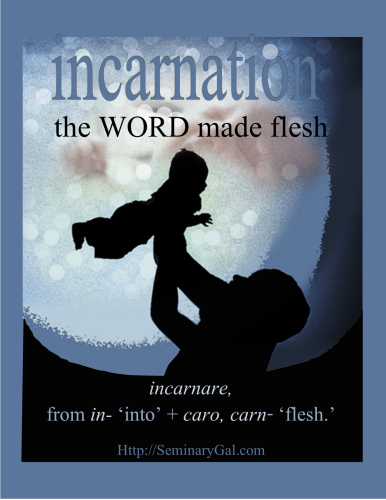 Imagine the excitement in a football game when it’s the last few seconds of the 4th quarter when one team has 4th down and goal to go. The ball is spotted a mere foot from the goal line. The difference between 6 points needed to win the game (or none and losing the match) involves muscling through the hard journey from the center’s snap to breaking the goal line before it’s “game over.”
Imagine the excitement in a football game when it’s the last few seconds of the 4th quarter when one team has 4th down and goal to go. The ball is spotted a mere foot from the goal line. The difference between 6 points needed to win the game (or none and losing the match) involves muscling through the hard journey from the center’s snap to breaking the goal line before it’s “game over.”
Who you’re rooting for depends on whether your favorite is presently the offense trying for a touchdown or the defense trying to prevent it… or here, I guess, who will place the Packers in the best possible situation. If you want the offense to score, then you want the players—either by superior wit or by brute force—to push past the defenders, over, under, around, or even through the obstacles to get over that goal line and touchdown! Adding that needed 6 points at the final countdown to zero. If you’re the offense, it’s all about the goal.
If you want the defenders to hold the line, then you will want them to throw every obstacle in the book at the offense in order to keep them from that goal line. No matter what!
 In the Christian world, we have an adversary. He wants to keep us from the goal line of faith. He will throw everything at us trying to keep us from crossing that line and be saved. For us, it’s more than 6 points added to our score, it’s a matter of life or death. Eternal life or an eternity of hell.
In the Christian world, we have an adversary. He wants to keep us from the goal line of faith. He will throw everything at us trying to keep us from crossing that line and be saved. For us, it’s more than 6 points added to our score, it’s a matter of life or death. Eternal life or an eternity of hell.
The hardest journey can be the one from darkness to light, moving from unbelief to faith, and traversing the hardest 12 inch journey—the hardest journey is the distance from one’s mind to one’s heart. A mere 12 inches that mean everything.
Today in Acts 24:22-27, we see a whole playbook from the devil, our adversary, carefully crafted to keep a person, in this case Governor Felix, from crossing that goal line of faith. Let’s take a look at this playbook of penalties so our team can penetrate this hardest 12 inches and make it through the goal line and win big. Jesus is at the goal line and He’s waiting to help you. He’s got the perfect plan and He is the perfect Way, but Satan will do anything:
Obstacle #1. Move the goal post. Convince someone they are already there.
Acts 24: 22 Then Felix, who was well acquainted with the Way adjourned the proceedings.
Felix was already acquainted with the Way. Nothing new here. Nothing to see. Same old same old. What does the adversary tell you? Don’t worry, Felix, you’re already in and you’re powerful. You’re winning big. Wrong. Well acquainted or passing a pop quiz on the information isn’t the same as faith. That 12 inch journey from head to heart requires getting to the heart. Because no one gets into heaven by knowing facts and figures about Jesus. No one gets to heaven by simply celebrating Christmas or even Easter. It’s not what you know, it’s WHO you know. Do you know Jesus? And moreover, does He know you?
Obstacle #2. Telling you to punt, yielding your power to someone not even on the field.
“When Lysias the commander comes,” he said, “I will decide your case.”
Punt. Punt! Paul really should have been set free according to the rule book, but Felix didn’t want to make the call or have the Gospel impact him so he’ll punt, giving the adversary control over the game while Felix waits for Lysias. Our adversary tries to convince us to punt. But punting the ball away doesn’t make that 12 inch journey any less hard. That 12 inch span is your great field position and Jesus is ready to break the line of opposition, but no one gets into heaven by punting on the decision.
Obstacle #3. Unsportsmanlike Conduct. Attempt to influence the officials’ decision. Think that good deeds can buy influence or credit.
23 He ordered the centurion to keep Paul under guard but to give him some freedom and permit his friends to take care of his needs.
While house arrest and having Paul’s friends able to visit and care for him might be nice things and delay Felix from having to do anything now, good deeds still don’t get a person out of the decision-making required. Ultimately the game isn’t played in the locker room with x’s and o’s on a blackboard no matter how much the adversary might tell you that’s good enough to get you the win. Good deeds are just a trap to convince someone that they’ve already moved from head to heart. We don’t earn heaven. We can’t erase our sin nature with good deeds. We need Jesus at game over. No one gets into heaven by good deeds alone. We must have faith.
Obstacle #4—Delay of Game. Later. Always later.
24 Several days later
Putting off the decisions and actions by saying there’s always tomorrow…isn’t getting anyone any over the goal line. Delay is a favorite obstacle of our adversary. He tries to convince us that there will be other days when in fact, the game is now and that 12 inch journey from the head to the heart needs to be crossed NOW. Many people will procrastinate and they say they’ll cross over when they’re on their deathbeds, which can happen unless they die too quickly. Later is a favorite delay of game trick. For many people the delay of game has been happening their whole lives. They may even think that as long as they’re continuing progress down the field and the chains are moved…that it will make the chains of bondage to sin go away. The chains aren’t gone. No amount of 1st downs get you over the goal line if you keep getting delay of game penalties. No one gets into heaven by waiting for the clock to run out.
Obstacle #5—Personal Foul. Position on Shoulders or Coattails.
(v 24 continued) Felix came with his wife Drusilla,
There is no position atop another player (e.g. shoulders, coattails) that counts. You cannot get through the hardest journey of 12 inches from mind to heart by letting your wife, husband, children, or friends do it for you or think they’ll give you an advantage. Ultimately crossing the goal line as a Christian … is not a team sport. It’s individual. You need to do it personally. No one gets into heaven on anyone’s merit other than that of Jesus Christ, the Son of God.
Obstacle #6—Sideline Interference Unsportsmanlike Conduct
who was a Jewess
Felix’s wife, Jewess or not, wasn’t in a position to tell him what to do. One of our adversary’s favorite tactics is to convince us that we need input from experts and those on the sidelines. Ultimately it’s your 12 inches from your head to your heart and no one else is going to advise you on it. No one gets into heaven by getting a consensus of outside experts or enough good sideline interference or play calling. I can’t get you into heaven. Pastor Glenn couldn’t get you into heaven. Your next pastor cannot get you into heaven. No one but Jesus can get you into heaven and the 12 inch span of faith is all that separates you from Him. There can be no sideline interference between you and the goal line. The 12 inch journey is all yours.
Obstacle #7—Illegal Participation—Listening without intending to hear.
He sent for Paul and listened to him
It doesn’t matter how many times Felix sends for Paul or how many times he has Paul tell him the old, old story. It’s like people who are described as in 2 Timothy 3:7 “always learning but never able to acknowledge the truth.” If you listen and listen and even learn and learn but don’t hear or take it to heart, you’re not getting past that 12 inches from head to heart. James 1:22 “Do not merely listen to the word, and so deceive yourselves. Do what it says.”
No one gets into heaven for having simply heard the Gospel.
Hearing the Gospel is not enough. We must respond to the Gospel by admitting our sins and repenting of them. Satan wants to convince you that listening to the Gospel each week, here, on TV, on the radio… is good enough. It’s not. Your head and your heart require your hearing with the intent of responding.
Obstacle #8—False Start. Pretending to simulate action.
He sent for Paul and listened to him as he spoke about faith in Christ Jesus. 25 As Paul discoursed on righteousness, self-control and the judgment to come, Felix was afraid
Jesus tells us that it is not enough to be convicted of our sin. We need to repent. No one gets in heaven just by being afraid of God. James 2:19 “You believe that there is one God. Good! Even the demons believe that– and shudder.”
Obstacle #9—Intentional Grounding. Calling it quits.
Felix was afraid and said, “That’s enough for now! You may leave .When I find it convenient I will send for you.”
Felix didn’t mind having his personal on-call evangelist, but he wanted to stop play whenever he wanted. Intentionally grounding the play does not stop the clock from running in a journey of faith. Time is not your friend in this. Jesus is returning when He is supposed to and any delays on your part only work to your disadvantage. That 12 inch span won’t get any shorter by calling it quits and waiting until later. Our enemy wants us to believe that there will always be a more convenient time to believe…after we get all that sinning out our system. No one gets into heaven by virtue of convenience.
Obstacle #10—Illegal formation. Wrong heart.
26 At the same time he was hoping that Paul would offer him a bribe so he sent for him frequently and talked with him 27 When two years had passed, Felix was succeeded by Porcius Festus, but because Felix wanted to grant a favor to the Jews, he left Paul in prison.
Felix heard about the Gospel, about righteousness, self-control and judgment and yet, he had a wrong heart…still waiting for a bribe and wanting to entrap Paul to sinning too. Even after 2 years–not an insignificant time in the life of Paul–Felix still had a wrong heart and instead of letting Paul go, he played politics and left Paul in prison.
Jesus talks about how hard it is for the rich and powerful to get into the kingdom. Matthew 19:24 “Again I tell you, it is easier for a camel to go through the eye of a needle than for a rich man to enter the kingdom of God.”
The richest among us have everything working against them. And those who are powerful or hell-bent on living a life of sin will ultimately find themselves with the game clock running out. When the clock hits zero, we are all revealed for who we really are. This past week, we learned that IL’s Fox Lake Police Lieutenant, Joseph Gliniewicz, was not in reality the kind of man we celebrated nationally as a fallen hero. Instead, he was just plain fallen. The whole world now knows, there was nothing heroic in what he did, in the string of betrayals he left behind, the vast sums of money from the manhunt for suspects that never existed, and all that’s left is for us to wonder if he confessed and repented in the moments before his staged suicide or if the obstacles meant he’d left that hard journey of 12 inches from his head to his heart to be penetrated only by a bullet… instead of by the Gospel.
Satan, our adversary, doesn’t care who you are or how he can fool you. He’ll do anything and I mean anything to keep you from salvation in Christ. Look at all Satan will do to keep a person from Jesus.
Obstacle #1. Satan will move the goal post to convince people they are already Christian when they’re not.
Obstacle #2. Satan will hint that punting for now is fine and dandy…when just takes you off the field where your hard journey decision might be made.
Obstacle #3. Satan will engage in unsportsmanlike conduct and tempt you to believe that good deeds can buy influence or earn salvation.
Obstacle #4—Satan will suggest a delay of game. Later. Always later. Never now…which too often means just plain never. Delay until it’s over and over really means “Too late.”
Obstacle #5—Satan will convince you to pursue a personal foul. Suggesting that your position on the shoulders or coattails of others is good enough when it’s not. It’s gotta be personal to you.
Obstacle #6—Satan will make you feel like you need sideline interference when it’s really just unsportsmanlike conduct. Like you need an army of experts and a consensus of friends to get into heaven. Look: Jesus is all you need. Pick up the ball and run with it.
Obstacle #7—Satan will assure you with illegal participation—Show up at church. Listen, listen, listen but without any intent of hearing.
Obstacle #8—Satan will tell you that a false start of fear is good enough. Fear God, great! But don’t do anything. Simulate action and do nothing. That’s what his demons do.
Obstacle #9—Satan will encourage your giving up. Intentional Grounding. Calling it quits. It’s too hard, too time consuming, too inconvenient. He wants you feeling like a chronic failure without a win, and without victory in Jesus.
Obstacle #10—Satan wants an illegal formation and a genuinely wrong heart. Don’t give up that sin. Don’t give up your power, prestige, or pandering.
There’s a hard journey of 12 inches between your head and your heart and Satan is working 24 hours a day, 7 days a week, 365 days a year to convince you that 12 inches is insurmountable. Satan says you can’t do it. Satan says God doesn’t care. Satan says you’ll never amount to anything.
But Satan is the opposition!
It’s 4th down and goal to go. A mere 12 inches separates you from faith in Christ. A mere 12 inches that Jesus is waiting to help you through. He wants to save you. He’s willing to help. He’s only asking that you do some simple things. Acknowledge that you need His forgiveness for sin and you know He is able to do it. There’s more than 6 points at stake and the clock is running. Stare those obstacles straight in the face and trust Jesus…He is the Way, the Truth, and the Life. Run to Jesus like there’s no tomorrow because there might not be one. Simple things for the hard journey of 12 inches, because God is faithful. Repent for the Kingdom of God is near. Confess and be forgiven and you too can be victorious. There is victory in Jesus! Let’s pray.
 Adam and Eve used to be in the Garden of Eden, naked as the day they were created. But then they disobeyed God, they rebelled against Him and they reaped the consequences that God told them ahead of time were going to happen.
Adam and Eve used to be in the Garden of Eden, naked as the day they were created. But then they disobeyed God, they rebelled against Him and they reaped the consequences that God told them ahead of time were going to happen. Let us start at the very beginning:
Let us start at the very beginning: This is the season of Thanksgiving—a natural time for reflecting and remembering with gratitude all the blessings in your recent history.
This is the season of Thanksgiving—a natural time for reflecting and remembering with gratitude all the blessings in your recent history. 13 About noon, O king, as I was on the road, I saw a light from heaven, brighter than the sun, blazing around me and my companions. 14 We all fell to the ground, and I heard a voice saying to me in Aramaic, ‘Saul, Saul, why do you persecute me? It is hard for you to kick against the goads.’ 15 “Then I asked, ‘Who are you, Lord?’ “‘I am Jesus, whom you are persecuting,’ the Lord replied. 16 ‘Now get up and stand on your feet. I have appeared to you to appoint you as a servant and as a witness of what you have seen of me and what I will show you. 17 I will rescue you from your own people and from the Gentiles. I am sending you to them 18 to open their eyes and turn them from darkness to light, and from the power of Satan to God, so that they may receive forgiveness of sins and a place among those who are sanctified by faith in me.’ 19 “So then, King Agrippa, I was not disobedient to the vision from heaven. 20 First to those in Damascus, then to those in Jerusalem and in all Judea, and to the Gentiles also, I preached that they should repent and turn to God and prove their repentance by their deeds. 21 That is why the Jews seized me in the temple courts and tried to kill me. 22 But I have had God’s help to this very day, and so I stand here and testify to small and great alike. I am saying nothing beyond what the prophets and Moses said would happen– 23 that the Christ would suffer and, as the first to rise from the dead, would proclaim light to his own people and to the Gentiles.”
13 About noon, O king, as I was on the road, I saw a light from heaven, brighter than the sun, blazing around me and my companions. 14 We all fell to the ground, and I heard a voice saying to me in Aramaic, ‘Saul, Saul, why do you persecute me? It is hard for you to kick against the goads.’ 15 “Then I asked, ‘Who are you, Lord?’ “‘I am Jesus, whom you are persecuting,’ the Lord replied. 16 ‘Now get up and stand on your feet. I have appeared to you to appoint you as a servant and as a witness of what you have seen of me and what I will show you. 17 I will rescue you from your own people and from the Gentiles. I am sending you to them 18 to open their eyes and turn them from darkness to light, and from the power of Satan to God, so that they may receive forgiveness of sins and a place among those who are sanctified by faith in me.’ 19 “So then, King Agrippa, I was not disobedient to the vision from heaven. 20 First to those in Damascus, then to those in Jerusalem and in all Judea, and to the Gentiles also, I preached that they should repent and turn to God and prove their repentance by their deeds. 21 That is why the Jews seized me in the temple courts and tried to kill me. 22 But I have had God’s help to this very day, and so I stand here and testify to small and great alike. I am saying nothing beyond what the prophets and Moses said would happen– 23 that the Christ would suffer and, as the first to rise from the dead, would proclaim light to his own people and to the Gentiles.”
 It has come to my attention that some of you are still excited about last year’s devotionals entitled Carol Me, Christmas! Yes, it was a fun series! If you’d prefer those devotionals, you’ll find them in the sidebar archives beginning November 2014. The announcement was
It has come to my attention that some of you are still excited about last year’s devotionals entitled Carol Me, Christmas! Yes, it was a fun series! If you’d prefer those devotionals, you’ll find them in the sidebar archives beginning November 2014. The announcement was  Today, we’ll see an example of what to do when confronted with decisions that are less than ideal. How to make lemonade when the world offers us choices that are nothing but lemons.
Today, we’ll see an example of what to do when confronted with decisions that are less than ideal. How to make lemonade when the world offers us choices that are nothing but lemons. Imagine the excitement in a football game when it’s the last few seconds of the 4th quarter when one team has 4th down and goal to go. The ball is spotted a mere foot from the goal line. The difference between 6 points needed to win the game (or none and losing the match) involves muscling through the hard journey from the center’s snap to breaking the goal line before it’s “game over.”
Imagine the excitement in a football game when it’s the last few seconds of the 4th quarter when one team has 4th down and goal to go. The ball is spotted a mere foot from the goal line. The difference between 6 points needed to win the game (or none and losing the match) involves muscling through the hard journey from the center’s snap to breaking the goal line before it’s “game over.” In the Christian world, we have an adversary. He wants to keep us from the goal line of faith. He will throw everything at us trying to keep us from crossing that line and be saved. For us, it’s more than 6 points added to our score, it’s a matter of life or death. Eternal life or an eternity of hell.
In the Christian world, we have an adversary. He wants to keep us from the goal line of faith. He will throw everything at us trying to keep us from crossing that line and be saved. For us, it’s more than 6 points added to our score, it’s a matter of life or death. Eternal life or an eternity of hell.